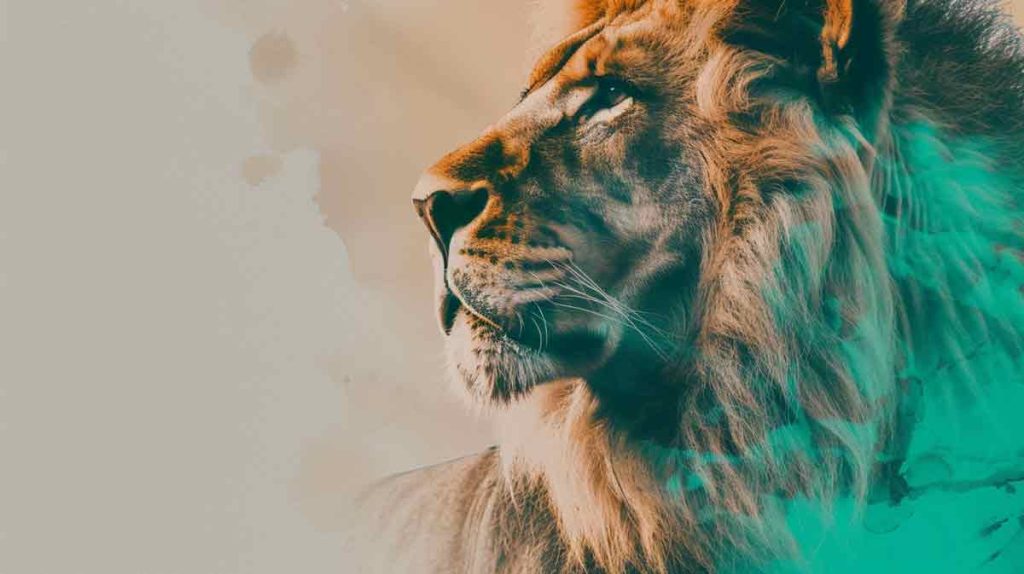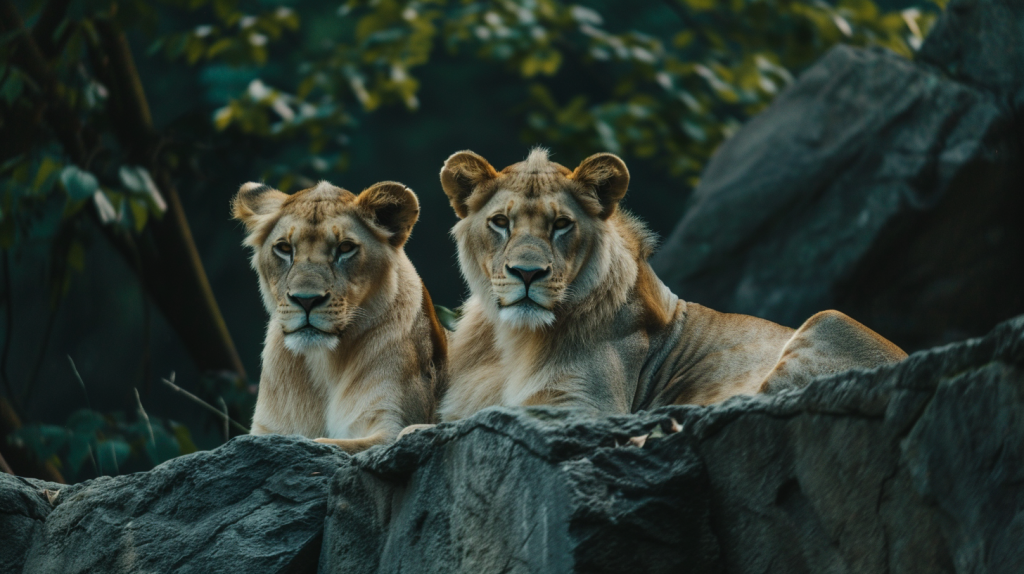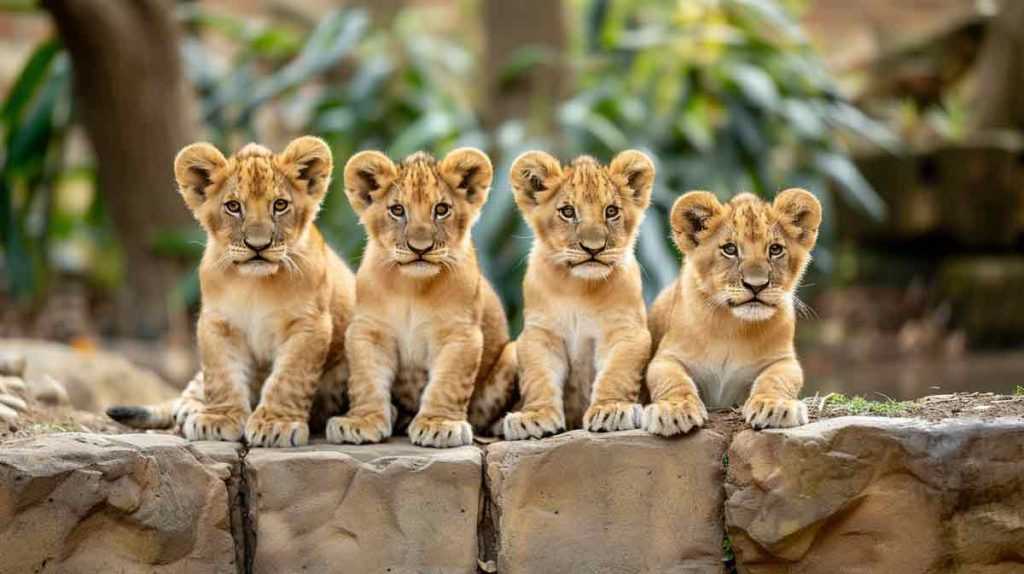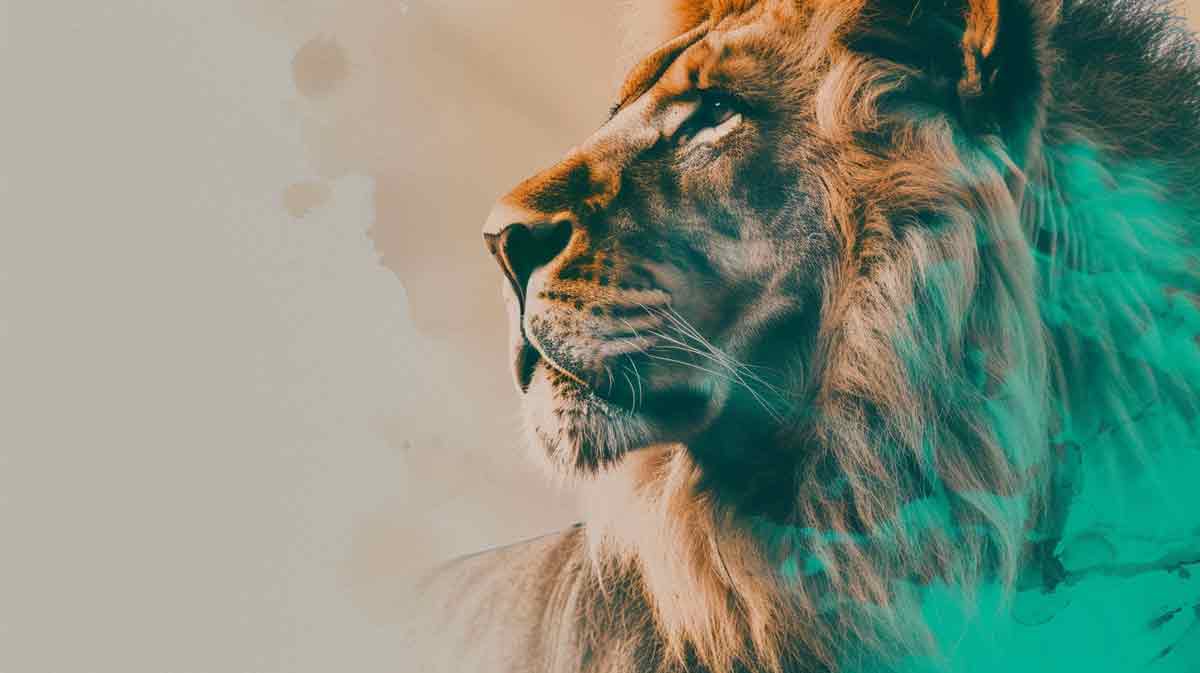Lions, the majestic kings of the African savannah, are renowned for their strength, courage, and pride. Within the intricate social structure of lion communities, male coalitions play a crucial role in maintaining dominance, protecting territories, and ensuring the survival of their pride. In Southern Africa, the dynamics of lion coalitions and pride offer a fascinating insight into the complexities of wildlife conservation and the delicate balance between human activities and natural ecosystems.

Characteristics of a Lion Coalition
Male lion coalitions consist of two or more related or unrelated males who ally to increase their chances of survival and reproductive success. These coalitions are characterized by their formidable strength, unity, and strategic cooperation, which enable them to defend territories, compete for mates, and dominate rival males.
Male Lion Coalition Dynamics
The formation of lion coalitions is a dynamic process influenced by kinship, age, and social bonds. Young males often form alliances with their brothers or cousins. In contrast, older males may join forces with unrelated individuals to increase their chances of siring offspring and maintaining control over territories.
Formation of Lion Coalitions
Lion coalitions typically form when young males are ousted from their natal pride by dominant males or when they disperse in search of new territories. These nomadic males may form temporary alliances with other dispersing males or join existing coalitions to increase their chances of survival and reproductive success.

Territorial Behavior in Lion Coalitions
Territorial behaviour is a crucial aspect of lion coalitions’ social dynamics. Lion coalitions mark and defend vast territories against intruding males and rival coalitions. The size and location of a coalition’s territory depend on factors such as prey availability, habitat quality, and competition with neighbouring pride.
Mating and Reproduction in Lion Coalitions
Male lion coalitions play a crucial role in mating and reproduction within their pride, as dominant males have exclusive mating rights with resident lionesses. By monopolizing breeding opportunities, coalitions ensure the transmission of their genes and the perpetuation of their lineage.
Interactions with Other Predators in Lion Coalitions
Lion coalitions often interact with other predators, such as hyenas, leopards, and wild dogs, competing for prey and defending their territories against intruders. These interactions shape their habitats’ ecological balance and influence the dynamics of predator-prey relationships.
How Lion Coalitions Establish and Maintain Dominance
Establishing and maintaining dominance in lion coalitions are complex processes influenced by age, experience, and social bonds. Dominant males assert their authority through displays of strength, aggression, and strategic alliances, ensuring their supremacy within their territories.
Role of Dominant Male Lions in a Coalition
Dominant male lions play a pivotal role in leading and protecting their coalitions. They are responsible for defending territories, mating with lionesses, and ensuring the survival of their offspring. Their leadership skills, courage, and resilience are essential for maintaining the cohesion and stability of their pride.
Rivalry and Conflict with Other Lion Coalitions
Competition between lion coalitions for resources and breeding opportunities often leads to intense rivalry and conflict. Confrontations between rival males can escalate into fierce battles, resulting in injuries, fatalities, and territorial shifts.
Strategies for Maintaining Dominance in Lion Coalitions
Lion coalitions employ various strategies to maintain dominance, including strategic alliances with neighbouring pride, aggressive territorial defence, and cooperative hunting tactics. These strategies enable them to assert their authority and ensure their continued survival in the competitive landscape of the savannah.
Impacts of Lion Coalitions on Local Lion Populations
Strong and cohesive lion coalitions can significantly impact populations, influencing genetic diversity, population dynamics, and ecosystem stability. By maintaining healthy territories and pride, lion coalitions contribute to the overall health and resilience of lion populations in Southern Africa.
Significance of Lion Coalitions in Conservation Efforts
Lion coalitions play a vital role in wildlife conservation efforts. They serve as flagship species for ecosystem conservation and contribute to the economic value of ecotourism. By protecting lion habitats, mitigating human-wildlife conflicts, and engaging local communities in conservation initiatives, efforts can be made to ensure the long-term survival of these iconic predators.
How Lion Coalitions Interact with Lionesses and Prides
Male coalitions interact closely with lionesses and their offspring within lion prides, providing protection, leadership, and reproductive opportunities. By forming stable social bonds and cooperative relationships, male lions contribute to the stability and cohesion of their prides, ensuring the survival and prosperity of future generations.

Impacts of Human Activities on Lion Coalitions and Prides
Human activities such as habitat destruction, poaching, and human-wildlife conflicts threaten lion coalitions and prides. Encroachment on lion habitats, depletion of prey populations, and retaliatory killings exacerbate conservation challenges and undermine efforts to protect these apex predators.
Conservation Efforts to Mitigate Human Impacts on Lion Coalitions
Conservation organizations and government agencies are implementing various strategies to mitigate human impacts on lion coalitions and prides. These efforts include habitat restoration, anti-poaching patrols, community-based conservation initiatives, and public awareness campaigns to promote coexistence between humans and lions.
Community Engagement for Lion Conservation and Coexistence
Community engagement and empowerment are essential components of lion conservation and coexistence efforts. By involving local communities in conservation decision-making processes, providing alternative livelihoods, and fostering positive attitudes towards lions, sustainable solutions can be developed to ensure the long-term survival of these iconic predators.
Future Perspectives for Sustainable Lion Coalition Conservation
Despite the challenges facing lion coalitions and prides in Southern Africa, there is hope for their continued survival and conservation. These magnificent apex predators can secure a brighter future by implementing integrated conservation strategies, addressing the root causes of human-wildlife conflicts, and promoting coexistence between humans and lions.
FAQ
What are dominant male lion coalitions?
Dominant male lion coalitions are groups of male lions that form alliances to defend territories, fend off rival males, and protect the pride of females and cubs.
How do male lions form coalitions?
Male lions form coalitions by teaming up with other males, often brothers or unrelated lions, to increase their chances of gaining and holding territory and ultimately increasing their reproductive success.
How does the presence of a coalition of lions affect prides?
A coalition of lions can significantly impact prides as they provide protection, dominance, and support in hunting, leading to the pride’s survival and success, especially in the face of territorial challenges from other males.
What is the role of younger male lions in lion coalitions?
Younger male lions often form smaller coalitions before attempting to take over a territory held by an established coalition. This is part of their natural progression towards establishing dominance and reproducing.
Where can one observe dominant male lion coalitions in Southern Africa?
Dominant male lion coalitions can be observed in game reserves such as the Sabi Sands region, Kruger National Park, and other wildlife areas within the Greater Kruger National Park ecosystem.
What is the relationship between the Mapogo coalition and the Sabi Sands region?
The Mapogo coalition gained fame for its dominance in the Sabi Sands region, establishing its reign as the most powerful coalition in the area for a significant period.
How do coalitions of male lions impact the dynamics of lion prides?
Coalitions of male lions play a crucial role in shaping the dynamics of lion prides, as their presence and dominance influence the survival, protection, and reproductive success of the lionesses and their cubs within the pride.
Are there specific prides known to be associated with dominant male lion coalitions?
Yes, within the Greater Kruger National Park ecosystem, specific prides, such as the Avoca pride, were associated with the Mapogo lion coalition, and wildlife enthusiasts and researchers closely followed wildlife enthusiasts and research.
Do new coalitions of male lions emerge within lion territories?
New coalitions of male lions can emerge in various ways, such as younger males forming alliances, males joining forces after being ousted from their original coalition, or unrelated males teaming up to challenge existing coalitions for territory and dominance.

